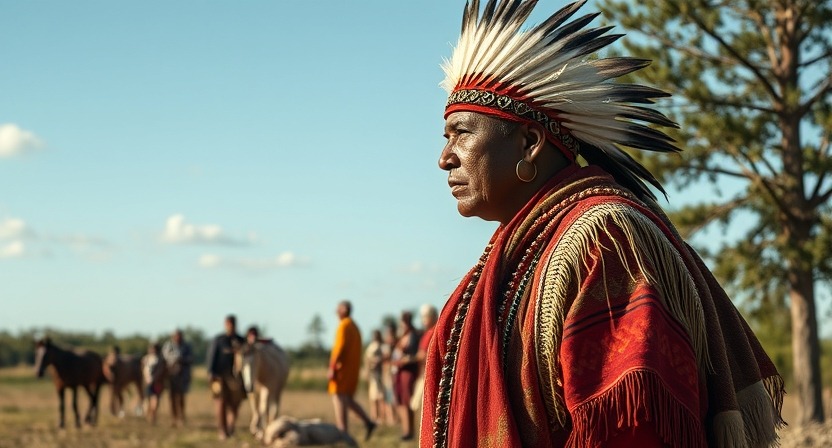A Quiet but Significant Change: Ending the Regional Controller Role
The Australian government’s decision to end the Central Australia Regional Controller role has sparked widespread concern. This role was created to oversee the rollout of a $250 million support package intended to address long-standing issues in Indigenous communities, especially in the Northern Territory.
The position of Regional Controller was seen as a vital part of ensuring accountability and coordination for these crucial initiatives. By quietly eliminating this role, many are questioning the government’s commitment to improving community safety and supporting Indigenous rights.
This change comes at a time when violent crime in areas like Alice Springs is on the rise, leaving communities feeling vulnerable and unsupported.
What Was the Regional Controller’s Role?
The Regional Controller was responsible for managing and implementing the government’s multi-million-dollar support package for Central Australia. This role was crucial in ensuring the funds were used effectively to address critical community issues, such as:
- Health and Wellbeing: Providing better access to health services for Indigenous communities.
- Education and Youth Support: Initiating programs to support young people and keep them engaged in safe, productive activities.
- Community Safety: Working with local authorities and community leaders to reduce violence and improve safety.
The Regional Controller acted as a bridge between federal agencies, local governments, and Indigenous leaders, ensuring that community voices were heard and respected.
Why Did the Role End?
The federal government has not provided a clear explanation for the decision to end the Regional Controller’s role. Some reports suggest it was part of a shift toward “local leadership,” with the goal of empowering local community groups to lead the change.
However, critics argue that removing a central figure responsible for oversight and coordination could result in confusion, inefficiencies, and delays in the implementation of support programs.
What’s at Stake for Indigenous Communities?
The end of the Regional Controller role has raised several critical concerns about the future of Indigenous rights and community safety in Central Australia. Here’s what’s at stake:
- Community Safety and Rising Crime
- Alice Springs has seen an increase in violent crime, with community members reporting more incidents of break-ins, theft, and assaults.
- Without a Regional Controller, there are fears that efforts to curb crime may lose focus and coordination.
- Accountability for the $250 Million Support Package
- The support package was designed to address systemic issues in Indigenous communities, including health, education, and safety.
- Without a single point of accountability, it’s unclear who will oversee how these funds are spent.
- Trust and Confidence in Government Commitment
- Indigenous communities have long advocated for sustained government support and accountability.
- The sudden end of this key role raises questions about the government’s long-term commitment to Indigenous well-being and rights.
Voices from the Community
Community leaders, advocates, and local residents have voiced their concerns about the decision. Many feel that the absence of a dedicated controller will lead to a lack of transparency and reduce the effectiveness of ongoing support programs.
“It feels like we’re being left to fend for ourselves,” one community member from Alice Springs said. “We need decision-makers who genuinely understand the challenges we face.“
Local Indigenous leaders have also criticized the lack of consultation before the decision was made. They argue that having a Regional Controller made it easier to escalate urgent issues and ensure timely responses from the government.
What Happens Next?
Without a Regional Controller, the responsibility for managing support programs may shift to local government bodies and community organizations. While local leadership is important, many believe that oversight from a centralized position is still essential.
The federal government’s next steps remain unclear. Community leaders and advocacy groups are calling for more transparency on how the $250 million will be managed and who will be responsible for ensuring it reaches those who need it most.
How Can We Support Indigenous Rights and Community Safety?
There are several ways that the public and policymakers can work to support Indigenous rights and improve community safety:
- Advocate for Accountability: Demand clarity on how support funds will be used and who will oversee them.
- Call for Community Consultation: Ensure that decisions affecting Indigenous communities involve meaningful consultation with local leaders and residents.
- Support Community-Led Initiatives: Empower Indigenous organizations and community groups to lead initiatives that address local needs.
A Call for Urgent Action
The decision to end the Central Australia Regional Controller role is more than just a bureaucratic change. It’s a shift with real consequences for Indigenous communities, especially in regions like Alice Springs that are grappling with rising crime rates and ongoing social challenges.
Indigenous communities deserve clear answers and a committed strategy from the government. Without a central figure to oversee support programs, it’s essential that local communities, advocacy groups, and policymakers come together to ensure the promised $250 million delivers real, lasting change.
The future of community safety and Indigenous rights in Central Australia depends on it.







